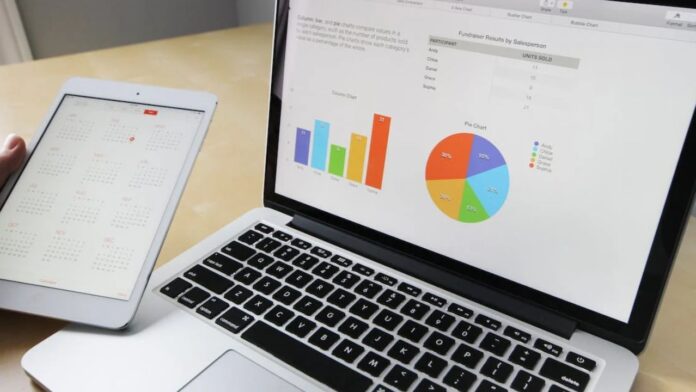Investing is a complex activity that demands due diligence, an understanding of market dynamics, and access to timely and accurate information. Fortunately, there are numerous research platforms available to individual and institutional investors to make this process more straightforward. These platforms offer a wide range of tools, from basic financial data and news like this to sophisticated predictive analytics.
Here are some of the top investor research platforms ranging from Bloomberg terminal to Morningstar, along with an overview of their features, pros, and cons.
1. Bloomberg Terminal
Features:
- Real-time financial market data
- News feeds
- Analytics and proprietary research
- Messaging and chat forums
- Portfolio tracking tools
Pros:
- Comprehensive data coverage
- Industry-standard platform used by professionals
- Highly customizable
Cons:
- Expensive, with subscriptions costing thousands of dollars per month
- Requires a steep learning curve
2. Morningstar
Features:
- In-depth analysis of mutual funds, stocks, and ETFs
- Portfolio tracking and planning tools
- Investment calculators
- Analyst reports
Pros:
- Respected source of independent investment research
- Useful for both beginner and advanced investors
- Relatively affordable
Cons:
- Some features behind a paywall
- Limited real-time market data
3. Seeking Alpha
Features:
- News aggregation
- Community-contributed research articles
- Earnings call transcripts
- Stock screeners
- Portfolio tracking
Pros:
- Free basic version available
- Wide range of opinions due to community contributions
- Real-time news updates
Cons:
- Quality of analysis can vary significantly
- Premium features can be expensive
4. Yahoo Finance
Features:
- Stock quotes and charts
- Financial news
- Earnings reports
- Economic calendar
- Basic portfolio tracking
Pros:
- Free to use
- User-friendly interface
- Adequate for basic research needs
Cons:
- Lacks in-depth analysis and professional-grade tools
- Limited customization options
5. FactSet
Features:
- Real-time market data
- Financial statements and reports
- Analytics tools
- Risk assessment models
- Collaboration tools
Pros:
- Comprehensive data sets
- Used by professionals for deep-dive analysis
- Strong focus on data integrity
Cons:
- Expensive
- Best suited for institutional investors and professionals
6. Eikon by Refinitiv
Features:
- Real-time and historical data
- News updates
- Analytical tools
- Risk management solutions
- Messaging system
Pros:
- Wide range of financial data
- Strong analytics capabilities
- Useful for multiple asset classes
Cons:
- High cost
- Complex user interface
7. Zacks Investment Research
Features:
- Stock and mutual fund ranking
- Earnings estimates
- Analyst reports
- Investment strategies
Pros:
- Strong track record in stock ranking
- Useful for discovering investment ideas
- Reasonably priced
Cons:
- Limited real-time market data
- Additional services require separate subscriptions
8. Motley Fool
Features:
- Stock recommendations
- Investment articles and advice
- Portfolio tracking tools
- Podcasts and community forums
Pros:
- Geared towards individual investors
- Strong long-term investment focus
- Quality stock picks backed by research
Cons:
- Subscription required for most useful features
- Can be overly focused on U.S. markets
Additional Considerations When Choosing an Investor Research Platform
When selecting an investor research platform, it’s important to weigh more than just the features, pros, and cons. Here are some additional considerations that can help you make an informed decision:
User Experience and Interface
A platform’s user experience can significantly impact how efficiently you can navigate its features and access critical information. A clunky or complicated user interface may impede your research process. Opt for platforms that offer intuitive design, clear layouts, and easy navigation.
Customizability
Every investor has unique needs and preferences. Platforms that allow customization enable you to adapt the tool to better fit your investing style. Whether it’s setting up custom alerts, creating tailored portfolios, or configuring screens to show the data most relevant to you, customizability can be a critical advantage.
Mobile Accessibility
The ability to access information on the go can be essential, especially for investors who aren’t always tied to a desk. A robust mobile application or a platform with mobile-responsive design can make it easier to stay updated wherever you are.
Data Accuracy and Timeliness
When it comes to investing, having accurate and up-to-date information is crucial. Some platforms may offer more frequent updates and ensure a higher level of data integrity. If real-time data and accurate analytics are important to your investing strategy, this is a feature you cannot compromise on.
Community and Collaboration Features
Some platforms offer community features such as forums, chats, and social sharing options that let you engage with other investors. These can be valuable for gaining different perspectives and for networking. However, keep in mind that not all opinions are equally valid, so be discerning when considering community-sourced advice.
Technical Support and Customer Service
Regardless of a platform’s features, you may at some point encounter technical issues or require assistance. Reliable customer support can make a world of difference in your user experience. Consider platforms with multiple support channels, like live chat, email, or phone support, and take note of their response times and helpfulness.
In-Depth Look: Emerging Research Platforms
While the platforms mentioned earlier are industry leaders, there are also emerging platforms worth your attention.
AlphaSense
This AI-driven platform provides search functions across transcripts, filings, news, and research, allowing users to find critical information quickly. It’s widely appreciated for its ability to sift through large sets of data and offer insights based on user queries.
Koyfin
Koyfin provides comprehensive data tracking for various asset classes and offers compelling graphical displays. It aims to simplify complex financial data into visual stories, making it particularly appealing to individual investors who may not have advanced data interpretation skills.
Quandl
Quandl specializes in sourcing and providing unique, hard-to-find financial and economic data. If you’re looking for alternative data sets that can give you a unique perspective on markets, Quandl could be the platform for you.
Pros:
- Niche data sets
- Highly customizable
- API access for advanced analysis
Cons:
- May require advanced data skills
- Not a complete solution for all research needs
Final Thoughts
Investor research platforms are critical tools that can significantly impact your investing outcomes. Whether you are a professional with specific requirements or an individual investor just getting started, there is a platform designed to meet your needs. Take time to consider not just the features but also the additional factors like user experience, data accuracy, and support when making your choice. Investing in the right platform is, after all, an investment in your financial future.




























